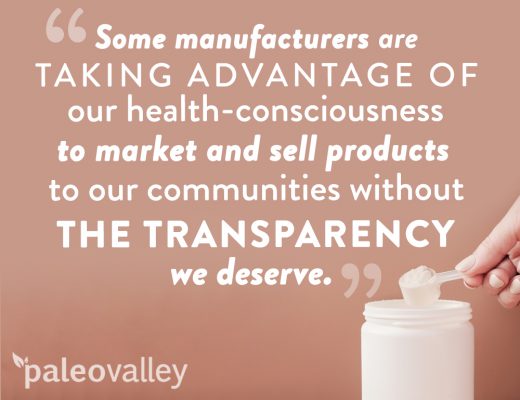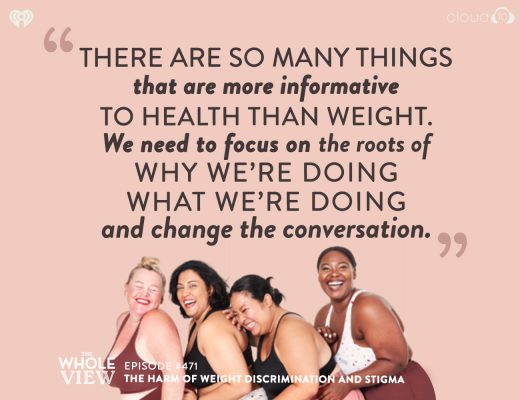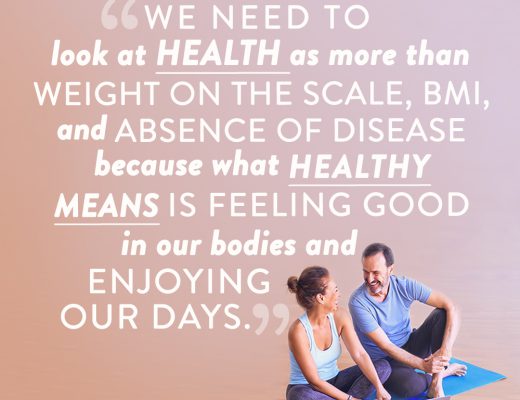Welcome Ally Vaughan and Molly Desch to The Whole View! This week, Stacy, Ally and Molly talk about their different experiences that led them to quit drinking and the effects alcohol has on our bodies. Our guests discuss examining our relationship with alcohol, tips to help make the transition to alcohol-free easier, and ways to talk to others about the decision not to drink.
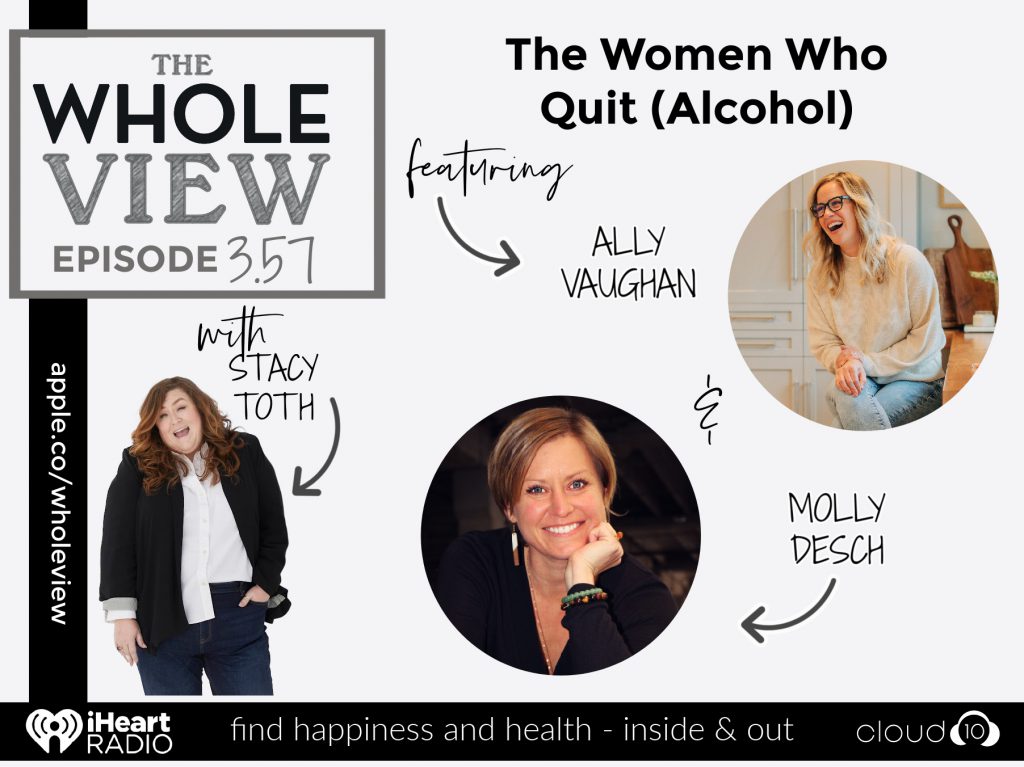
Find Ally:
Find Molly:
If you enjoy the show, please leave a review. Letting people know on iTunes or however you listen that it’s worth their time could change someone’s life!
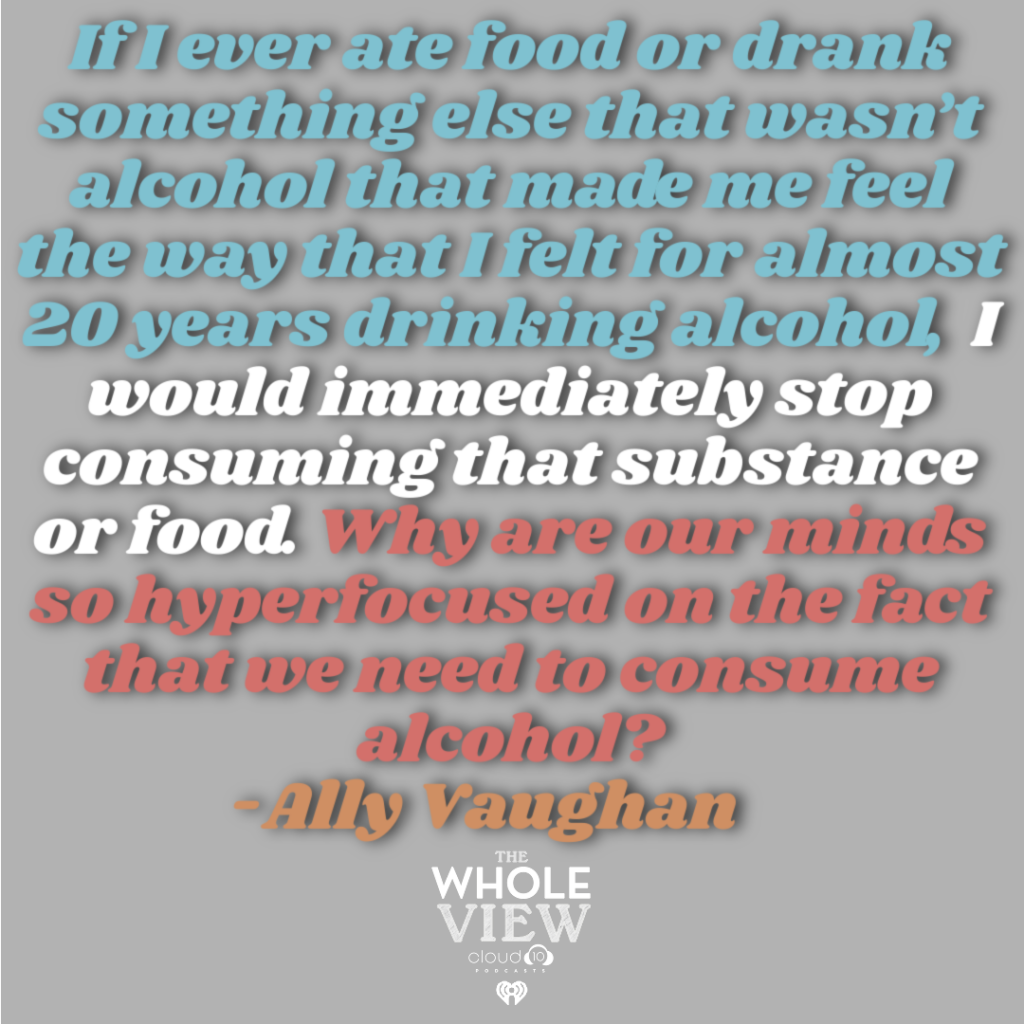
Key Takeaways
This podcast discusses drinking alcohol. If you or someone you know needs help with substance use disorder call 800-662-HELP in the US for the SAMHSA National Helpline.
Introductions
- Molly is a Certified Women’s Sober Coach who focuses on coaching women to free themselves from alcohol with renewed energy, confidence, and pride using her Sustainable Path to Sobriety program.
- Molly has been featured on CBS and NBC News, and in Real Simple, Woman & Home, ScaryMommy, her journey led her to the realization that she “HAD” to or “needed to get sober. She took it one day at a time, slowly developing new coping mechanisms, showing up to AA, and reading all the quit lit she could get she could get her hands on.
- Ally is a Certified Professional Coach and Transformational Embodiment Facilitator with a Bachelor of Science in Human Nutrition with years of professional experience in the nutrition industry.
- Her journey is different than Molly’s in that her lived experience – over a year and a half alcohol-free, was voluntary for health reasons. Ally’s anxiety got so bad she began to make the connection that drinking was potentially a cause. After an alcohol-induced panic attack, she woke up the next morning and said will never ever drink again.
Moderate Drinking Has No Health Benefits
- Stacy emphasized that the point of this topic was to empower listeners with information and reminds us that we each live in our own bodies making our own choices, so this is not meant to cause shame or judge others.
- A 40 year study [source] the first of its kind because unlike other studies that found moderate benefit to minor drinking, this one removed all individuals who had stopped drinking due to addiction or other health issues. Then, it was an apples to apples comparison among drinkers and non-drinkers. Which, not surprisingly, finally showed that there is no benefit.
- The World Health Organization posted an article stating: “Alcohol is a toxic, psychoactive, and dependence-producing substance and has been classified as a Group 1 carcinogen by the International Agency for Research on Cancer decades ago – this is the highest risk group, which also includes asbestos, radiation and tobacco. Alcohol causes at least seven types of cancer, including the most common cancer types, such as bowel cancer and female breast cancer. Ethanol (alcohol) causes cancer through biological mechanisms as the compound breaks down in the body, which means that any beverage containing alcohol, regardless of its price and quality, poses a risk of developing cancer.” [source]
Next Steps
- When turning to alcohol to take the “edge off” consider for a moment what it may be like sitting with that edge. Edges are uncomfortable but they can give us information and they can let us enter into our emotions that we may not have felt yet or in a long time.
- Our guests offered many suggestions on moving away from alcohol and coping with its absence:
- Move your body, do things differently
- Try an alternative beverage when out: Sparkling water with lime, kombucha in a wine glass, etc
- Engage with “sober” media: “Quit Lit”, podcasts, etc
- Find sober community (could be a progam like AA) in-person or online or get a sober coach
- Meditate or do breathing exercises, which lowers cortisol
- Take a nap
- Anti-anxiety or other medications can be used as tools
- As well as suggestions of how to talk to others about the decision:
- The more you talk about it, the more confidence you get. You can even role play with a best friend or partner. Start in a safe space. Get some foresight to what is may feel like.
- Get clear on your own emotional boundaries. Is it anyone’s business? It’s your story to tell.
- A simple “no thanks”
So you want more? Come join the Patreon community! You can support The Whole View podcast and hear what Stacy and her guests really think about the topic in this week’s exclusive and uncensored behind-the-scenes bonus audio. Also, we love connecting with our Patrons! It’s a direct line to submit your questions for upcoming shows. You also get access to some additional cool features like Q&As, voting on show topics and guests, and an exclusive commercial-free episode.
Studies, References & Products
- Quit Like a Woman by Holly Whitaker
- Alcohol Explained by William Porter
- Huberman Lab Podcast: What Alcohol Does to Your Brain & Health
- On Health Podcast: On Women, Alcohol, Our Hormones and Menstrual Cycles w/ Aviva Romm MD
- The Whole View, Episode 420: CBD For Pain Managment
- The Paleo View, Episode 393: CBD – Panacea, Snake Oil, or Somewhere in Between
- Association Between Daily Alcohol Intake and His of All-Cause Mortality, JAMA
- Instagram Reel: Dr. Amen
- World Health Organization: No level of alcohol consumption is safe for our health
- NYTimes: Moderate Drinking Has No Health Benefits, Analysis of Decades of Research Finds
- Moderate Alcohol Consumption and the Risk of Breast Cancer, The New England Journal of Medicine
- Smithsonian Magazine: Where Does the Word ‘Teetotaler’ Come From?
- CDC.gov: Alcohol and Cancer
- Lyre’s Non-Alcoholic Spirits
- Ritual Zero Proof
Sponsors
- Indeed.com/wholeview
- Just Thrive | Use code WHOLEVIEW for 15% off sitewide
- Beautycounter.com/StacyToth | Shop the Friends & Family Sale for 15-25% off
Want more info on our Real Life? Healthy recipes, parenting tips, and general lifestyle stuff goes out in our Real Everything newsletter, join here.
Never want to miss a post, sale, or deal? Join my Healthy Inside & Out e-mail list for more info on non-toxic living and safer skincare!
Note: Stacy and her guests are not medical professionals. This podcast is for general educational purposes and NOT intended to diagnose, advise, or treat any physical or mental illness. We always recommend you consult a licensed service provider.

